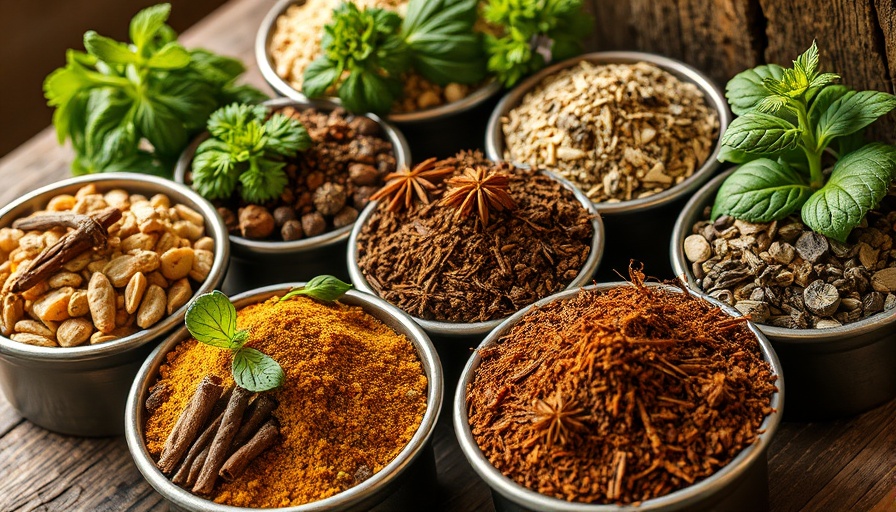
Herbal Remedies: A Journey Through Winter Wellness
The cold and flu season can feel relentless as temperatures drop and the air becomes crisp. During our childhood, the thrill of outdoor play often drowned out any worry about winter's common illnesses. However, as adults, we become more aware of the necessity to protect ourselves.
With germs thriving in colder weather and easily transmitted indoors, we turn to the natural healing powers of herbs. These green allies have been utilized for centuries due to their potent antibacterial and antiviral properties, effectively enhancing our immune defenses.
Embrace the Power of Herbs with Chai Tea Immune Booster
One comforting way to fend off the cold and flu is the Chai Tea Immune Booster. This delightful tea infuses spices and beneficial herbs to create a drink that warms both the body and spirit while combating seasonal ailments.
Adaptogens such as ashwagandha and shatavari empower your immune system by supporting your body in the face of stressors, boosting the production of white blood cells. Adding ginger, cinnamon, and honey enhances this tea's natural healing properties, making it an excellent winter companion.
Here’s an easy recipe you can try:
2 cups water
1/4 tbsp dried holy basil (tulsi)
1/4 tbsp dried ashwagandha root
1/4 tbsp dried shatavari root
1/2 tbsp fresh ginger, chopped
2 cardamom pods
1 star anise
1 cinnamon stick
Raw honey and milk to taste
Instructions:
Combine water, holy basil, ashwagandha, shatavari, and ginger in a saucepan. Heat to a slight boil, then reduce to low and simmer for 15 minutes.
Add cardamom, star anise, and cinnamon, simmer for an additional 5 minutes.
Sweeten with honey and add milk as desired. Enjoy hot!
Exploring Other Natural Remedies for Cold and Flu
Apart from this spicy chai, several other herbal remedies can support your health during cold and flu season:
Echinacea: Famous for its immune-boosting qualities, this herb has been shown in studies to reduce the likelihood of colds and flu symptoms when taken preventively or at their onset.
Ginger: Renowned for its anti-inflammatory properties, ginger can soothe sore throats and support respiratory health. Ginger tea amplifies its benefits, especially when mixed with honey and lemon.
Elderberry: A staple in many households, elderberry syrup has gained recognition for its ability to lessen the duration and intensity of flu symptoms.
Understanding the Healing Nature of These Ingredients
The primary goal of these herbal remedies is to empower individuals to better navigate their health, especially against the backdrop of conventional medicine. This natural approach is not just for those already caught in the grips of illness. By incorporating natural complements to our preventive measures, we can foster a resilient immune system.
For instance, as stated in studies by Dr. Aviva Romm, not only do herbs like Echinacea reduce cold duration, but they also hold the promise of offering immediate support when symptoms first appear.
The Emotional Connection to Herbal Healing
Utilizing these natural remedies creates a sense of comfort and familiarity. Remembering childhood moments of sipping warm drinks after playing outdoors in the cold interacts with our emotional waves. As adults, we can foster that connection, allowing herbal traditions to nurture our modern lifestyles, leading us toward a more holistic approach to health and wellness.
As we embrace winter, let us not only arm ourselves with knowledge but also with the herbal tools to ease discomfort — progressing towards a flourishing season of health.
 Add Row
Add Row  Add
Add 




Write A Comment